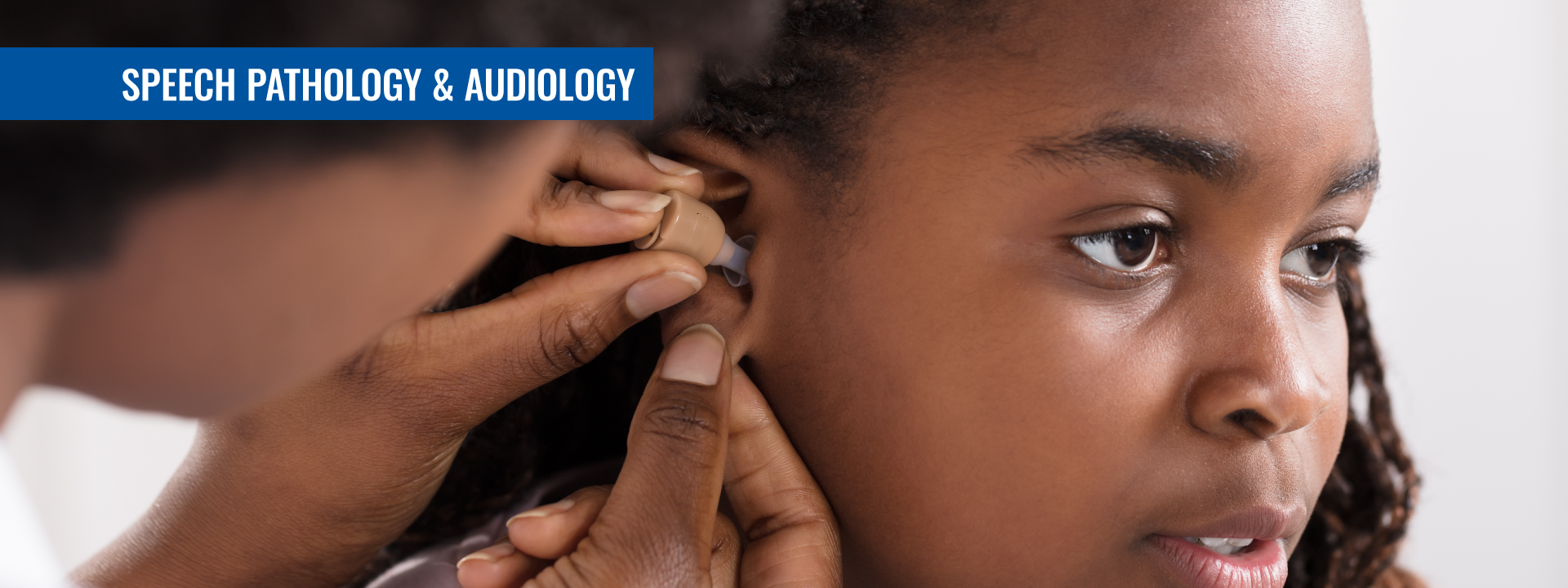When Should You Reach Out to a Speech Pathologist for Language Disorders?
When Should You Reach Out to a Speech Pathologist for Language Disorders?
Blog Article
Just How a Speech Pathologist Can Aid Improve Interaction Abilities
Reliable communication is a foundation of individual and expert success, yet lots of individuals deal with difficulties that hinder their ability to express themselves plainly. A speech pathologist is furnished to attend to these obstacles with targeted evaluation and intervention methods customized to every individual's needs. By using evidence-based healing methods, they not only work to boost speech and language problems yet also enhance total communicative skills. Comprehending the diverse role of a speech pathologist exposes exactly how their know-how can transform lives, inviting a more detailed assessment of the certain methods and end results connected with their practice.
Comprehending Communication Disorders
Recognizing communication problems is vital for identifying exactly how they influence individuals' capacity to express themselves and involve with others. Communication conditions encompass a wide variety of problems that influence speech, language, and social interaction, commonly hindering efficient interaction. These disorders can develop from various elements, consisting of neurological problems, developmental hold-ups, physical impairments, or mental concerns.
Speech disorders may materialize as troubles in articulation, fluency, or voice production, influencing how words are pronounced or spoken. Language conditions, on the various other hand, entail obstacles in understanding or using language, which can hamper both spoken and non-verbal interaction. Social communication disorders are defined by problems in the practical facets of communication, such as taking turns in conversation or understanding social hints.
The repercussions of interaction conditions are extensive, influencing not just the individual's ability to convey thoughts and emotions but also their social relationships, academic chances, and general high quality of life. Understanding of these conditions can promote compassion and support, motivating effective methods for interaction and involvement. Recognizing the intricacies of interaction conditions is a critical action in the direction of advertising inclusivity and addressing the demands of those influenced.
Duty of a Speech Pathologist
Speech pathologists often play an important role in dealing with and identifying communication disorders, employing a variety of evidence-based methods tailored to each person's requirements. These experts deal with individuals across the life-span, from youngsters with speech delays to adults recouping from strokes or distressing brain injuries. Their proficiency encompasses a variety of interaction issues, consisting of expression, voice, language, and fluency disorders.
In healing settings, speech pathologists utilize organized interventions designed to improve communication skills. They might execute strategies such as speech workouts, language video games, and social communication training to help with renovations in responsive and expressive language capacities. Speech Pathologist. Additionally, they inform customers and their households concerning efficient interaction techniques and flexible methods to navigate everyday communications
Beyond straight therapy, speech pathologists team up with other health care specialists, caretakers, and teachers to make certain a thorough technique to therapy. They advocate for clients by supplying sources and support, allowing people to attain their communication goals and improve their general lifestyle. As specialists in the field, speech pathologists are essential in fostering efficient interaction, advertising freedom, and boosting social engagement for those with communication challenges.
Assessment and Diagnosis Process
The evaluation and medical diagnosis procedure carried out by speech pathologists commonly entails a comprehensive evaluation to identify communication conditions precisely. This process begins with a comprehensive situation history, where the clinician gathers relevant details concerning the person's clinical, academic, and developing background. Comprehending the context of the individual's communication difficulties is necessary for an exact medical diagnosis.
Complying with the situation history, speech pathologists utilize casual evaluations and standardized examinations to examine different aspects of interaction, consisting of speech noise production, language comprehension, expressive language, and social interaction abilities. These evaluations are tailored to the person's age and certain issues, providing beneficial data for evaluation.
Monitoring is also a critical part of the evaluation procedure, as it enables the clinician to see direct just how the individual interacts in all-natural setups. In addition, interviews with member of the family and educators can offer understanding into the person's communication obstacles across various environments.
When the analysis is total, the speech pathologist manufactures the findings to establish a diagnosis and advise appropriate treatments. This comprehensive analysis process makes certain that individuals get targeted assistance tailored to their one-of-a-kind communication requirements, laying the structure for effective restorative strategies.
Restorative Strategies and Techniques
Many healing techniques and methods are used by speech pathologists to address a range of interaction disorders successfully. One extensively utilized method is articulation therapy, which concentrates on dealing with speech sounds via repeating and aesthetic signs. This strategy is particularly useful for people with speech audio problems.
Another efficient approach is language treatment, which boosts both expressive and receptive language skills. This may involve interactive tasks that advertise vocabulary development, sentence structure understanding, and conversational skills. Additionally, speech pathologists typically utilize social abilities educating to enhance pragmatic language capabilities, making it possible for people to browse social communications a lot more effectively.
Fluency shaping and stuttering adjustment methods are particularly developed to help those experiencing fluency conditions. These techniques assist clients develop smoother speech patterns and manage the psychological and physical parts of stuttering.
Additionally, augmentative and alternate communication (AAC) systems are employed for people with serious communication impairments. These systems, which can consist of motions, signs, or digital gadgets, offer vital support for reliable interaction.
Benefits of Speech Therapy

Additionally, speech treatment can help in establishing important listening and comprehension abilities, cultivating much better interaction in conversations. People with cognitive-communication conditions can also benefit, as treatment concentrates on strengthening memory and problem-solving capabilities, important for efficient interaction.
Another critical facet is the psychological support given throughout therapy sessions. Speech pathologists develop a risk-free environment, motivating individuals to get rid of anxiety and frustration relevant to their communication concerns. This support can lead to enhanced self-esteem and total mental health.
Additionally, early treatment through speech treatment can prevent more problems, making certain that individuals reach their complete communicative capacity. On the whole, the benefits of speech therapy expand beyond plain speech improvement, favorably impacting different measurements of life for those influenced click site by communication troubles.
Conclusion
In summary, speech pathologists play a critical role in attending to communication conditions via assessment, diagnosis, and customized healing interventions. By utilizing evidence-based strategies, these professionals boost people' speech and language capabilities, promoting boosted quality, fluency, and social interaction skills. The advantages of very early treatment underscore the significance of seeking aid from speech pathologists, as their knowledge can dramatically boost communicative potential, ultimately resulting in higher success in both specialist and personal spheres.

Speech pathologists regularly play a vital function in detecting and dealing with interaction problems, using a range of evidence-based methods tailored to each individual's demands. As experts in the area, speech pathologists are necessary in cultivating visit the site reliable interaction, promoting self-reliance, and improving social engagement for those with communication difficulties.

Report this page